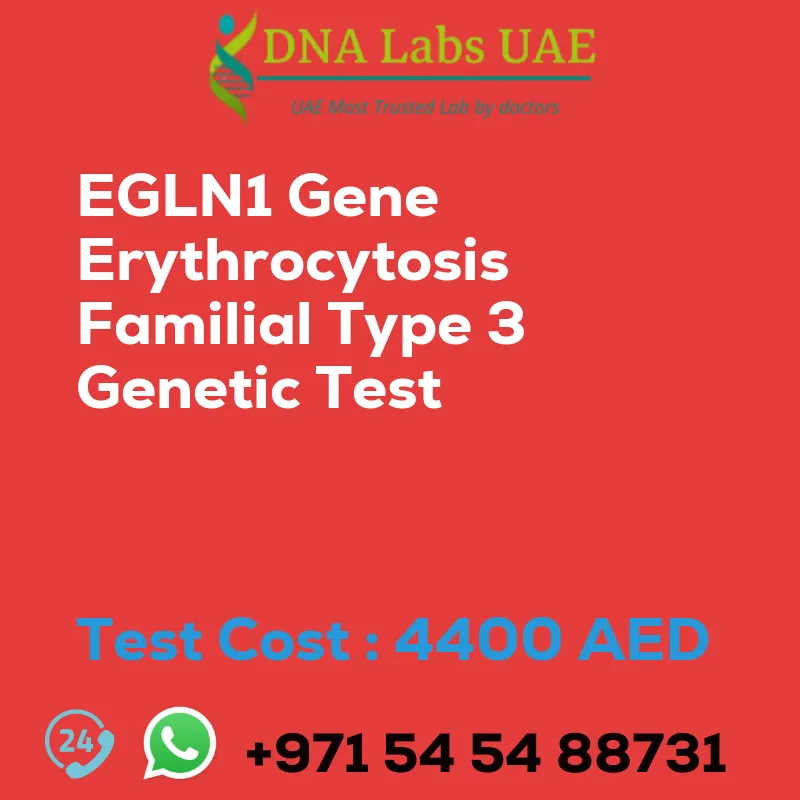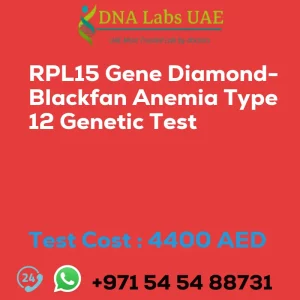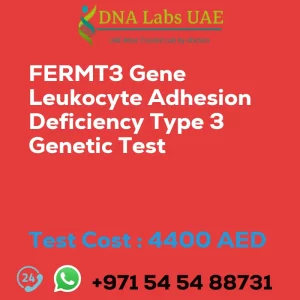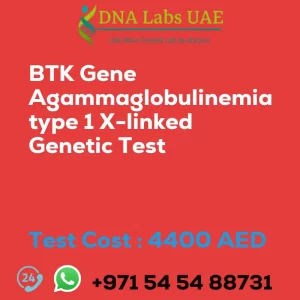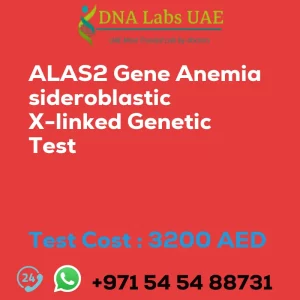EGLN1 Gene Erythrocytosis familial type 3 Genetic Test
Components: EGLN1 Gene Erythrocytosis familial type 3 Genetic Test
Price: 4400.0 AED
Sample Condition: Blood or Extracted DNA or One drop Blood on FTA Card
Report Delivery: 3 to 4 Weeks
Method: NGS Technology
Test type: Hematology
Doctor: Hematologist
Test Department: Genetics
Pre Test Information: Clinical History of Patient who is going for EGLN1 Gene Erythrocytosis, familial type 3 NGS Genetic DNA Test. A Genetic Counselling session to draw a pedigree chart of family members affected with EGLN1 Gene Erythrocytosis, familial type 3 NGS Genetic DNA Test gene EGLN1
Test Details:
EGLN1 gene erythrocytosis, familial type 3 is a genetic condition characterized by an increased number of red blood cells (erythrocytosis). This condition is caused by mutations in the EGLN1 gene, which provides instructions for making a protein called prolyl hydroxylase domain-containing protein 2 (PHD2). PHD2 plays a crucial role in regulating the production of red blood cells. It acts as an oxygen sensor, detecting low oxygen levels in the body. When oxygen levels are low, PHD2 activates a signaling pathway that stimulates the production of erythropoietin (EPO), a hormone that promotes the production of red blood cells. Mutations in the EGLN1 gene disrupt the normal function of PHD2, leading to the overproduction of red blood cells even when oxygen levels are normal. This results in erythrocytosis, which can cause symptoms such as fatigue, headache, dizziness, and increased blood viscosity.
NGS genetic testing can be used to identify mutations in the EGLN1 gene that are associated with familial type 3 erythrocytosis. This type of genetic testing involves sequencing the DNA of an individual to detect specific genetic variations or mutations. By identifying the specific mutation in the EGLN1 gene, NGS testing can provide a definitive diagnosis for individuals with familial type 3 erythrocytosis. Genetic testing can also help in determining the inheritance pattern of the condition, as familial type 3 erythrocytosis is typically inherited in an autosomal dominant manner. This means that an affected individual has a 50% chance of passing the mutation to each of their children. NGS genetic testing for EGLN1 gene erythrocytosis can be useful in diagnosing affected individuals, providing genetic counseling, and guiding treatment decisions. Treatment options for this condition may include phlebotomy (removal of blood to reduce red blood cell count), medications that suppress EPO production, or other interventions to manage symptoms and reduce the risk of complications associated with erythrocytosis.
| Test Name | EGLN1 Gene Erythrocytosis familial type 3 Genetic Test |
|---|---|
| Components | |
| Price | 4400.0 AED |
| Sample Condition | Blood or Extracted DNA or One drop Blood on FTA Card |
| Report Delivery | 3 to 4 Weeks |
| Method | NGS Technology |
| Test type | Hematology |
| Doctor | Hematologist |
| Test Department: | Genetics |
| Pre Test Information | Clinical History of Patient who is going for EGLN1 Gene Erythrocytosis, familial type 3 NGS Genetic DNA Test. A Genetic Counselling session to draw a pedigree chart of family members affected with EGLN1 Gene Erythrocytosis, familial type 3 NGS Genetic DNA Test gene EGLN1 |
| Test Details |
EGLN1 gene erythrocytosis, familial type 3 is a genetic condition characterized by an increased number of red blood cells (erythrocytosis). This condition is caused by mutations in the EGLN1 gene, which provides instructions for making a protein called prolyl hydroxylase domain-containing protein 2 (PHD2). PHD2 plays a crucial role in regulating the production of red blood cells. It acts as an oxygen sensor, detecting low oxygen levels in the body. When oxygen levels are low, PHD2 activates a signaling pathway that stimulates the production of erythropoietin (EPO), a hormone that promotes the production of red blood cells. Mutations in the EGLN1 gene disrupt the normal function of PHD2, leading to the overproduction of red blood cells even when oxygen levels are normal. This results in erythrocytosis, which can cause symptoms such as fatigue, headache, dizziness, and increased blood viscosity. NGS genetic testing can be used to identify mutations in the EGLN1 gene that are associated with familial type 3 erythrocytosis. This type of genetic testing involves sequencing the DNA of an individual to detect specific genetic variations or mutations. By identifying the specific mutation in the EGLN1 gene, NGS testing can provide a definitive diagnosis for individuals with familial type 3 erythrocytosis. Genetic testing can also help in determining the inheritance pattern of the condition, as familial type 3 erythrocytosis is typically inherited in an autosomal dominant manner. This means that an affected individual has a 50% chance of passing the mutation to each of their children. NGS genetic testing for EGLN1 gene erythrocytosis can be useful in diagnosing affected individuals, providing genetic counseling, and guiding treatment decisions. Treatment options for this condition may include phlebotomy (removal of blood to reduce red blood cell count), medications that suppress EPO production, or other interventions to manage symptoms and reduce the risk of complications associated with erythrocytosis. |

